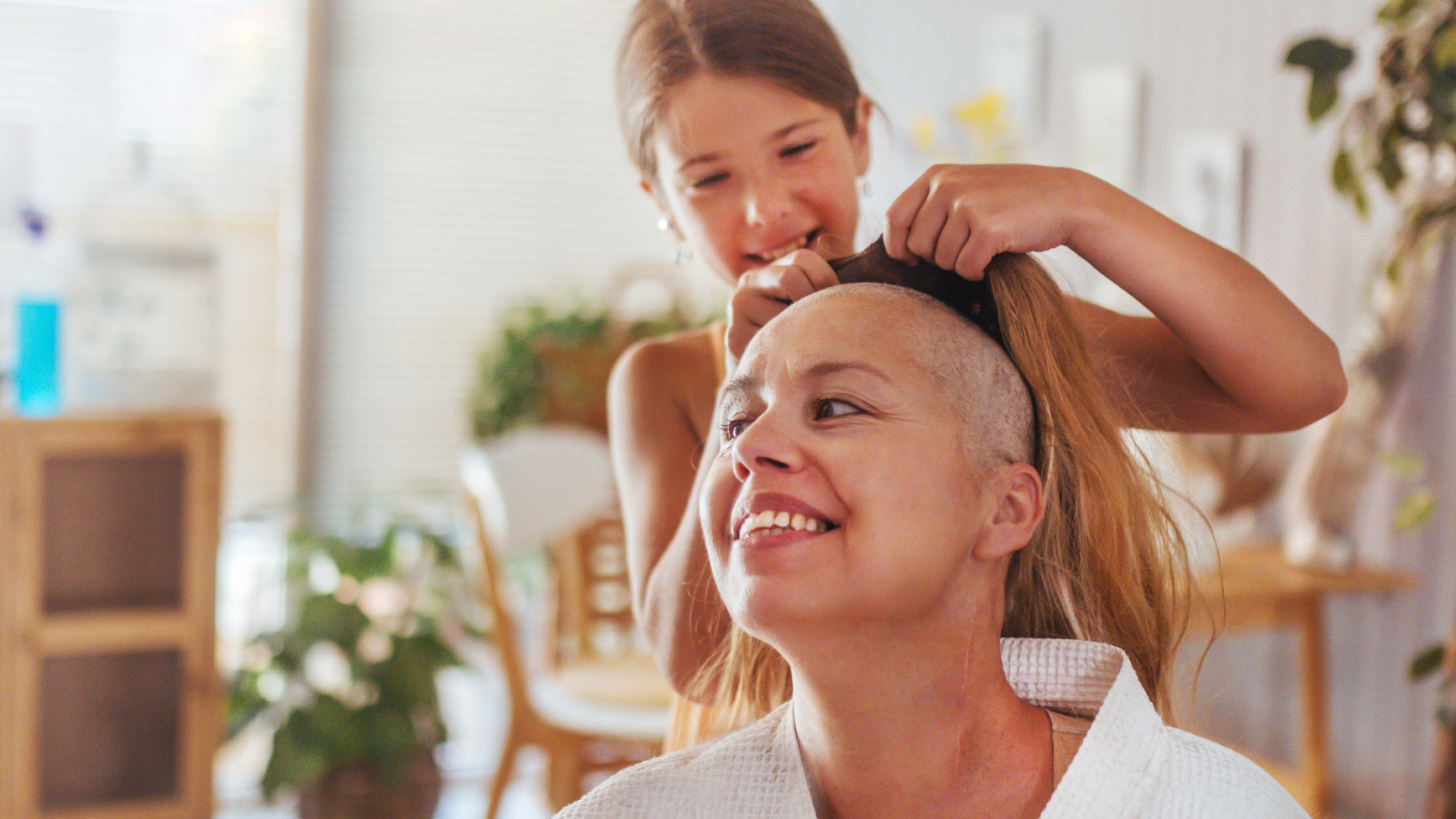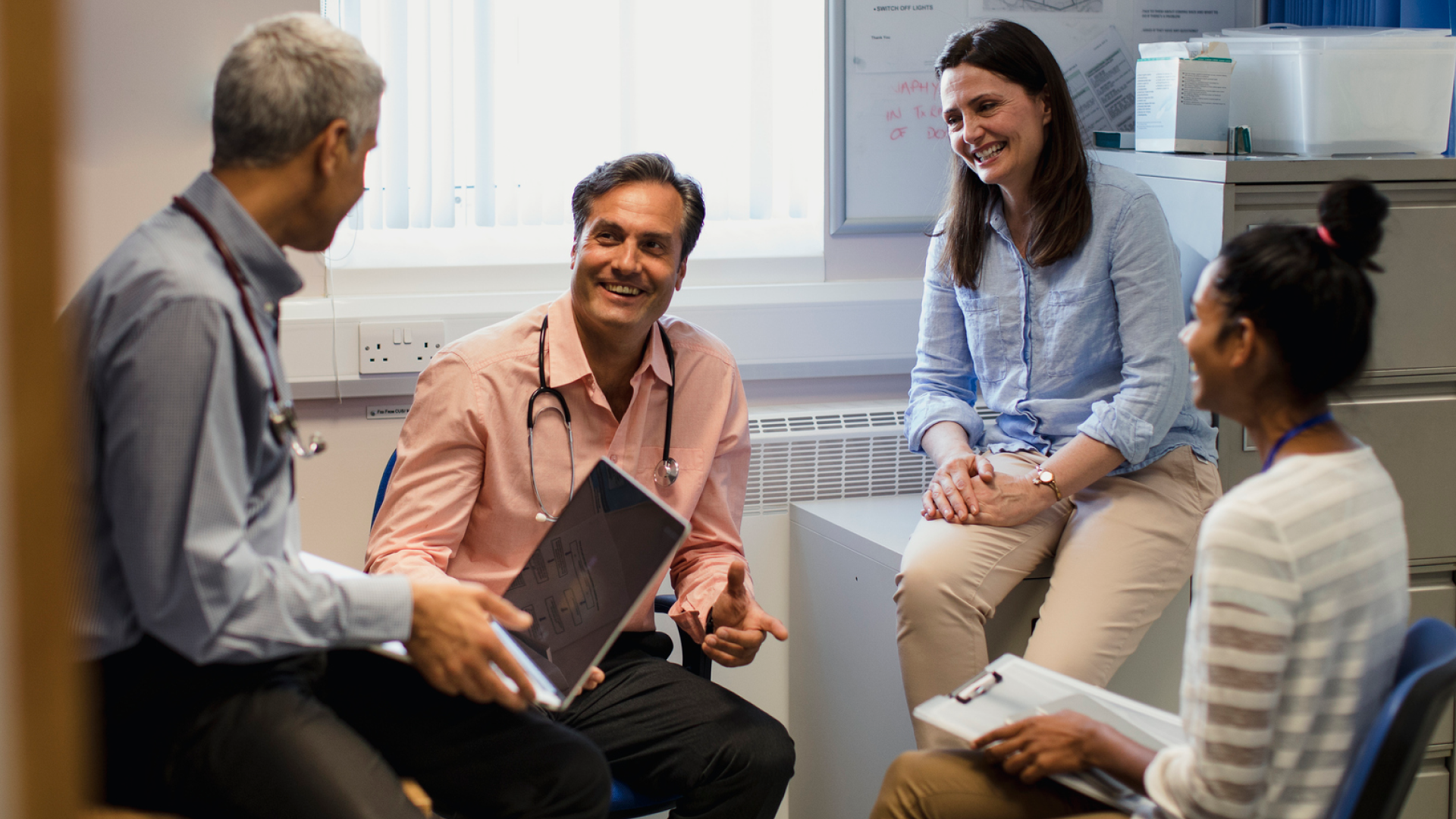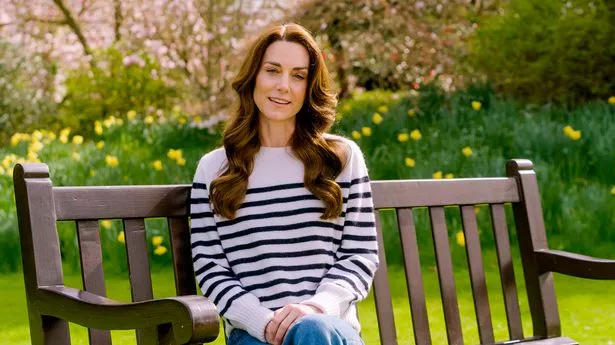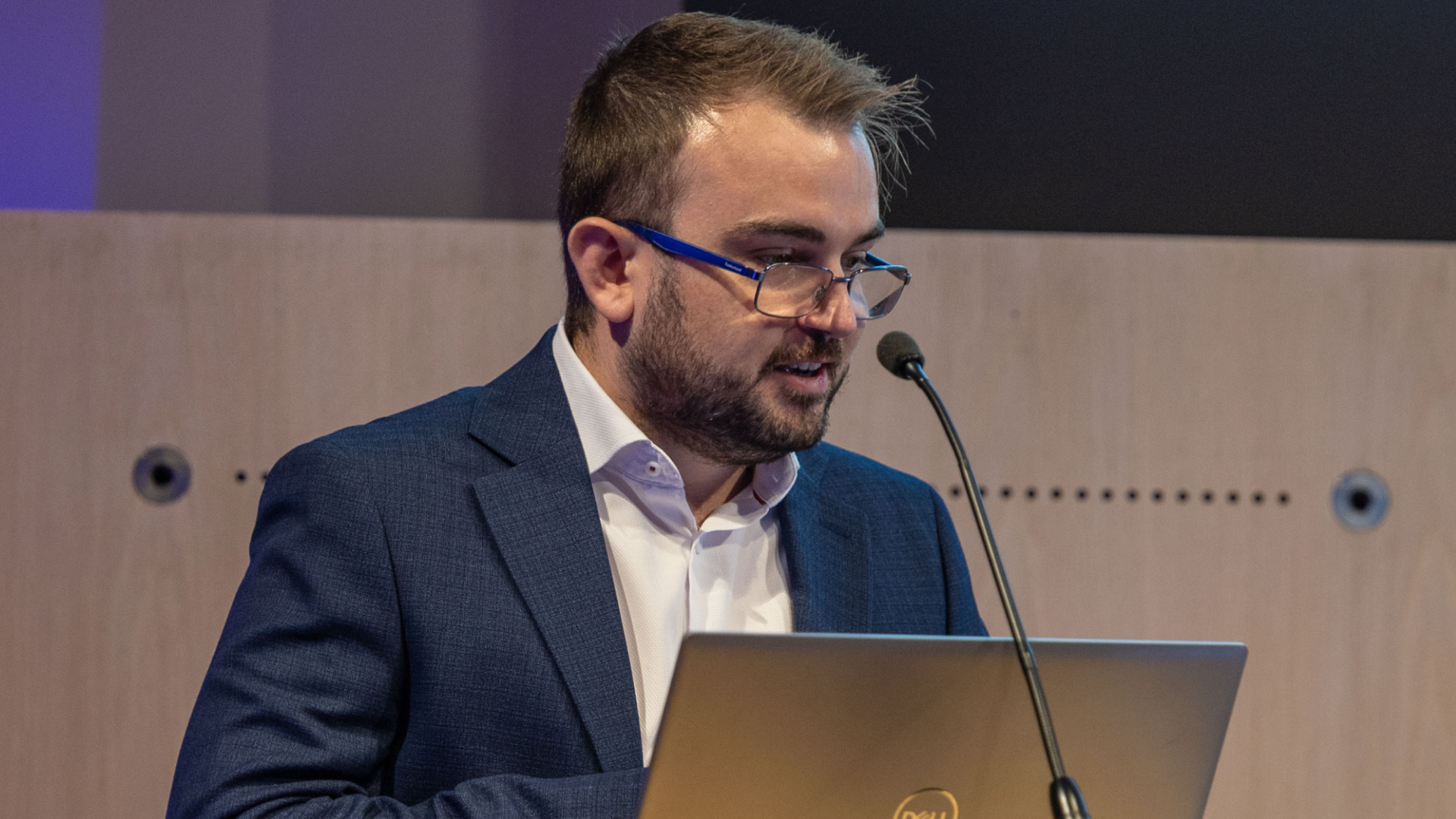Newsroom
Our latest news and
announcements.

Why early cancer diagnosis matters
Cancer affects almost every family, but one thing shapes outcomes more than anything else: how early it’s found. When cancer is diagnosed sooner, treatment is usually simpler, options are greater, and people have a much better chance of living longer, healthier lives.
Early diagnosis gives people time - and that time can change everything.
Why it can be hard to spot early signs
The first signs of cancer are often subtle. Tiredness, a lingering cough, changes in appetite or digestion - symptoms that are incredibly common and usually caused by something minor. With so many possibilities, it can be difficult to know what needs attention and what can wait.
Primary care clinicians are often the first people patients turn to. They see a huge range of symptoms every day, often with limited time to explore them fully. It’s a challenging balance: being thorough, being reassuring, and making sure no early clue is overlooked.
This isn’t a reflection of ability.
It’s simply the nature of early cancer symptoms - they’re easy to miss, even when clinicians are doing everything right.
Where technology can make a meaningful difference
As cancer becomes more complex, clinicians need support that helps them make sense of subtle symptoms quickly and confidently.
Modern technology - including AI designed for early cancer detection - can help by:
- recognising patterns that may not be obvious at first glance
- supporting consistent, evidence-based decision-making
- helping clinicians identify when further checks might be needed
- making sure patients at risk don’t slip through the cracks
The goal isn’t to replace clinical judgement. It’s to strengthen it - and lighten the load on the people who carry so much responsibility.
The impact of finding cancer sooner
When cancer is identified earlier:
- people start treatment sooner
- recovery can be quicker
- treatment is often less invasive
- survival rates increase
- families gain more time together
Early diagnosis isn’t just a clinical milestone - it’s a moment that can change the course of a life.

Supporting primary care clinicians to diagnose cancer earlier
Diagnosing cancer early is one of the most complex and emotionally demanding responsibilities placed on primary care clinicians. It’s in primary care - the first place most people turn when something doesn’t feel right - where the earliest clues of cancer often appear. These signs are rarely clear, rarely dramatic, and rarely easy to separate from everyday illnesses.
And yet, this is where early detection begins. At the very first conversation. In the very first appointment. With the clinicians who know their patients best. This is why the demands placed on primary care clinicians are so great - and why they deserve systems designed to support them.
Seeing the small signs that can be easy to miss
In primary care, symptoms rarely arrive in neat, textbook patterns. Fatigue, a persistent cough, subtle abdominal discomfort, a quiet change in weight - these common concerns can be signs of countless conditions, most of them benign. But occasionally, they are the earliest indication of cancer.
Recognising these signals within a short consultation, often with partial information, is a profound clinical challenge.
Primary care clinicians must balance:
- large and growing patient caseloads
- time-limited appointments
- complex and evolving cancer guidelines
- administrative responsibilities such as referral coordination, documentation and safety-netting
- rising patient expectations and system pressure
And they must do so while ensuring every patient feels heard, reassured, and supported.
These pressures don’t simply affect workflows — they affect wellbeing. The emotional weight of worrying about a missed diagnosis can stay with clinicians long after their day ends.
Turning uncertainty into early action
Our platform analyses symptoms, risk factors, demographics, and clinical information in seconds - highlighting when a patient may be at risk and guiding the clinician toward the right next step.
It integrates within the systems clinicians already use, supporting healthcare teams across many regions, whether through EMIS, SystmOne or local electronic medical record systems.
This helps clinicians:
- Cross-check symptoms against validated cancer pathways
- Recognise rare or non-specific presentations earlier
- Refer or investigate patients with greater clarity and confidence
Every earlier investigation gives patients something invaluable: time to act, time to treat, and time to live the moments that matter.
Strengthening clinical judgment - not replacing it
Our platform is built to work with clinicians, never instead of them. It unites the best available evidence, national and international guidelines, and AI-powered insight in one clear, supportive view.
This leads to:
- Less diagnostic uncertainty
- More consistent, evidence-based decisions
- Improved patient safety and continuity of care
As one clinician shared:
“C the Signs helps me confirm when my instincts are right — and sometimes, when they’re not.
It ensures that no patient slips through the net.”
— GP, North West England
A global movement towards earlier diagnosis
Healthcare systems around the world share the same goal: to find cancer earlier and give patients the best possible chance.
Clinicians using C the Signs are already seeing meaningful change - with earlier referrals, faster diagnostic timelines, and improved identification of patients with cancer.
Behind every statistic is a person whose story is changed by earlier clarity. A family kept whole. A future rewritten.
Platforms like C the Signs - used across more than 1,500 practices and supporting over 10 million patient lives - help clinicians detect a patient with cancer every 22 minutes. Each one represents time given back.
More than technology - a partnership for better care
Technology alone doesn’t transform early cancer detection. People do.
Our platform is shaped hand-in-hand with clinicians across the world, grounded in their experience and continually refined through their insights.
Together, we’re helping shift early cancer detection from a reactive moment to a proactive standard of care - where every symptom is seen, every risk understood, and every patient given the best possible chance.
Image Credit: iStock

How Princess Kate’s bravery is shifting cancer awareness
In the wake of Princess Kate's deeply personal revelation, disclosed amidst relentless scrutiny from the press following her absence from royal duties, we are reminded of the delicate balance between public life and private suffering.
Her disclosure, shared with a heavy heart, was not a choice freely made but a response to an untenable situation where the boundary of personal privacy was breached by widespread speculation. Princess Kate demonstrated unparalleled bravery and a profound sense of solidarity with those quietly enduring their battles with cancer.
This situation underscores a critical conversation about the sanctity of privacy and the broader implications for everyone navigating through a cancer diagnosis. The loss of privacy can often feel like a loss of control, a sentiment deeply resonant with those dealing with cancer. It eliminates the autonomy to choose how and when to confront one's vulnerabilities, adding an unnecessary burden during an already tumultuous time. Respecting someone's diagnosis means allowing individuals the dignity to face their illness on their terms, to maintain control over their narrative, and to protect their identity from being overshadowed by their diagnosis.
The forced unveiling of Princess Kate's cancer diagnosis highlights the intense pressure public figures often face, transforming what should be a deeply private matter into public discourse. However, the manner in which she chose to address this unwelcome spotlight offers us a moment for reflection and, ultimately, inspiration.
The revelation of her diagnosis at the age of 42, as a mother of three, challenges widespread misconceptions about who can be affected by this pervasive disease. It underscores the stark reality that 1 in 2 individuals will face a lifetime risk of cancer, with 1 in 10 new diagnoses occurring in the 25-49 age group, and women being twice as likely as men to be diagnosed within this bracket. These statistics highlight the indiscriminate nature of cancer and emphasise the critical need for increased awareness and early detection efforts.
By sharing her story, Princess Kate has built a bridge of solace and understanding with women, parents, and cancer patients everywhere, those who grasp the depth of her experience on a profoundly human level. It serves as a reminder that behind the titles, responsibilities, and expectations are individuals grappling with their vulnerabilities, fears, and the daunting journey of cancer treatment. The princess's situation underscores why many opt to navigate their illness in private—protecting not just their sense of self but also affording themselves the space to cope with the multifaceted challenges cancer brings without the additional burden of public scrutiny.
Princess Kate's openness serves as a rallying cry for solidarity and hope. It's a poignant reminder that cancer does not discriminate—it can affect anyone's life, regardless of age or status. Her courage in sharing her story should serve as a call to action, urging people to actively engage in their health by recognising symptoms, understanding risks, and promptly seeking medical advice when needed, thus offering an opportunity to demystify the disease and encourage open discussions about health and the importance of early detection.
As our hearts go out to Princess Kate and countless others on their personal cancer journeys, this moment invites us to reflect on the compassion, understanding, and respect we owe to one another, fostering a community where everyone feels supported in their time of need.
References:
Cancer Research UK - almost 10% of new cancer diagnoses in people aged 25-49
NHS - 1 in 2 people will get cancer at some point in their lifetime
Featured
Why every moment matters: A message from Dr Miles Payling
At the inaugural C the Signs Conference, Dr Miles Payling - Co-Founder and Chief Scientific Officer - delivered a message that captured the heart of a movement reshaping how the world detects cancer.
He spoke about science, yes. But more importantly, he spoke about people. About time. About the moments we can give back when cancer is found sooner.
“We can’t afford to wait for symptoms to become obvious. Every moment matters - because every moment lost is a choice, a treatment, a life that could have been saved.”
The question that changed everything
Miles shared the story that shaped the mission behind C the Signs.
As an NHS doctor, he met a patient named Joe - active, fit, and 60 years old. After several GP (primary care) visits with vague symptoms, Joe arrived at hospital jaundiced and unwell. Scans confirmed metastatic pancreatic cancer.
Three weeks later, Joe died.
“Joe never asked, why do I have cancer? What he asked was, why was my cancer picked up so late?”
That question became the foundation of C the Signs - a platform built to help clinicians detect cancer early enough to change the outcome.
Today, that vision makes a measurable difference: a patient with cancer detected every 22 minutes.
Each one represents a life identified sooner - and a future that’s less defined by fear.
Why early detection still falls short
Cancer remains one of the leading causes of death worldwide. Survival still depends heavily on the stage at diagnosis.
- Breast cancer five-year survival falls from 97.9% at stage 1 to 26.2% at stage 4.
- Bowel cancer falls from 91.7% to 10.3%.
- Yet only around 58% of patients are diagnosed at an early stage.
In primary care - where most people first seek help - clinicians face enormous pressures:
brief consultations, complex presentations, thousands of patients, and on average only a handful of cancer diagnoses each year. As Miles said in his conference speech:
“The problem isn’t people. It’s knowledge. We need to give every GP the power of precision - instantly.”
Early detection doesn’t fail because clinicians aren’t trying.It fails because cancer is complex, symptoms are subtle, and the time to make sense of them is short. Our platform exists to bridge that gap - offering clinicians timely clarity when decisions need to be made.
Innovation and redefining what’s possible
C the Signs brings together trusted medical evidence, real-time data and AI-powered insight to support clinicians in moments where clarity matters most.
Within seconds, our platform can highlight when a patient may be at risk and guide their doctor toward the right diagnostic pathway - across more than 100 cancer types. But the impact isn’t defined by speed, it’s defined by the lives reached sooner.
Real-world evaluations across the NHS have shown that clinicians using C the Signs are able to:
- identify patients whose symptoms signal concern - even when the signs are hard to spot
- offer reassurance by safely ruling out risk when symptoms are more likely to be benign
- give clinicians clearer insight into where a tumour may have started
- help reduce emergency cancer presentations by half
- shorten the time it takes for patients to reach a diagnosis
Each of these outcomes represents something deeply human: a patient receiving answers earlier,
a family spared uncertainty, a healthcare system given space to care, not catch up.
This is what innovation should do - not stand in the place of clinical judgement, but enhance it. It should deepen insight and make the subtle more visible, so clinicians can act early with the confidence their patients deserve.
The movement, and honouring Jess’s Rule
Miles closed by sharing the story of Jessica Brady - a 27-year-old whose symptoms were subtle, persistent and easy to misinterpret. Despite several visits to her doctor, her cancer was found too late. Her loss is felt deeply, not only by those who loved her, but by clinicians across the country who want every patient to be seen in time.
To honour her legacy, our team is introducing Jess’s Rule - a safeguard within the platform that gently alerts clinicians when a patient returns multiple times with unresolved symptoms, prompting a thoughtful, timely cancer risk assessment.
It’s a small change with a profound purpose: to make sure no patient is ever unintentionally overlooked, and no pattern is missed simply because symptoms are subtle.
As Miles said:
“We can turn tragedy into transformation - by ensuring that no patient is ever overlooked again.”
Jess’s story is a reminder of why this movement matters. Together, we can help make early cancer detection a standard for everyone - not a privilege for a few - and give each person the time, choice and hope they deserve.











.svg%201.png)

